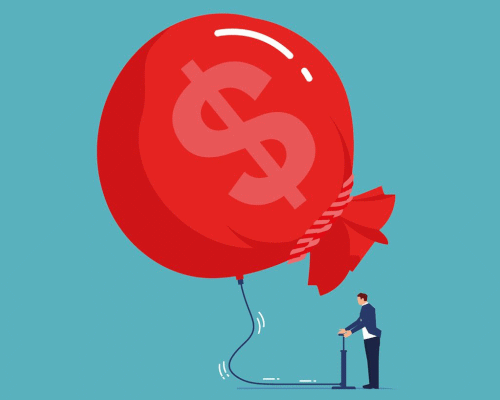[ad_1]

(CNS): The price of food, rent, utilities and clothes all increased during the second quarter of this year. The local inflation rate is still rising, even though it has slowed down to 4.1% from its peak of over 12% in the summer of 2022. The Consumer Price Index (CPI) between March and June was 130.4, with higher price indices recorded in ten of the twelve divisions.
Premier Wayne Panton said he was well aware of how challenging this is for many families but maintained that PACT was continuing with initiatives to help people get through.
According to the official statistics released by the Economics and Statistics Office, the price of household furnishings and equipment rose by 10.7%, food by 7%, housing and utilities by 6%, and alcohol by almost 4%, making it another difficult quarter for residents. A 15.3% increase in the price of electricity was a major factor in the rising cost of living.
While the quarter-on-quarter inflation reveals that the CPI declined slightly compared to the rate for the first quarter, prices are not coming down and tackling inflation is a top priority for the government, Panton said.
“The residual effects of the pandemic and Russia’s invasion of Ukraine have contributed to prices rising more quickly than usual over the last few years,” he stated in a press release about the latest inflation figures. “These price increases also have the effect of raising the cost of living across our islands, especially for the most vulnerable Caymanians.
“We know this is worrying for many people and families, and this remains one of the top priorities for this government. Indeed, tackling the cost of living is one of the challenges this administration grapples with each day. Every morning, we wake up seeking solutions that bring meaningful relief to the people of this country,” he added.
With inflation running at 4.1% during the second quarter, down from 6.6% in the first, there is a gradual levelling off in the inflation rate. However, the rate for this year is still expected to be around 5.2%, far higher than any salary increase.
“It is expected that the impact of Central Bank actions and improvements in the international supply chain will help to temper these price pressures throughout the upcoming year,” Panton said but acknowledged that the cooling down was still making the cost of living the most pressing issue for many people here.
“Despite this slowdown in the pace of inflation, these increases remain well above the comfort levels for many Caymanians,” the premier said. “Government initiatives to decrease the cost burden for families, including providing free school meals for our children, removing import duties on essential products, increasing pension payments to retirees, and reducing fees for the elderly, will continue.”
The premier said that both the ongoing review of the national minimum wage and the recommendations of the inter-ministerial housing task force will offer solutions to address issues surrounding the cost and availability of affordable housing in the Cayman Islands.
“Inflation is falling, but it is still too high,” he said. “While I will continue to do everything in my power as premier to bring inflation down, I think most Caymanians will recognise and appreciate that inflation is a local challenge with global causes.”
In its July update, the International Monetary Fund (IMF) said that inflation remains high globally and continues to erode the purchasing power of families and households in countries around the world.
“These burdensome, global inflationary pressures are a challenge for families and kitchen tables across the Islands,” Panton said. “This government will continue to do our best to mitigate and deal with the effects of inflation for Caymanians here at home.”
See the Cayman Islands’ Consumer Price Index Report: April to June 2023.
[ad_2]
Source link

